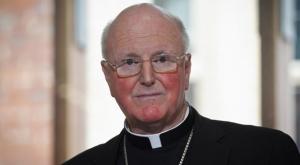Yesterday I attended a meeting to discuss the study of interfaith and/or inter-eligious relations and dialogue. Very quickly the discussion turned to the problem of how these terms include and exclude.
For example the word “faith” excluded people who are religious,but whose religion doesn’t typically see being religious in terms of faith. They say “interfaith” excludes them. On the other hand those that come from a tradition that sees Christianity as essentially a matter of faith and not religion say that “inter religious” excludes them.
Then someone mentioned that the word religion (like faith) also excludes atheists and humanists – and these people want to be part of the discussion as well. Indeed back in Dallas I heard the same thing more than once in discussions about forming a center for inter-religious dialogue.
And here I began to realize that the typically American discussion about inclusion and exclusion quickly becomes confused and confusing – and terrifically counterproductive.
In this case the confusion was two-fold. First it was a confusion over who was invited to participate in an academic discussion. And secondly it was confusion over which social phenomenon would be included in that discussion. The first of these is easy to deal with. Everyone is welcome to engage in an academic discussion. At the American Academy of Religion, where our meeting was taking place, you don’t have to be Buddhist to talk about Buddhism, or Muslim to talk about Islam.
The second is tougher, because it displays a rather typical confusing of dialogue as a means by which people discuss a common interest, and dialogue as a means of “including” the broadest possible range of people in a social activity. Is dialogue a group of model train enthusiasts gathered in the corner of the room at a party? Or is it the host knocking a spoon on a glass and announcing that everyone is going to play charades so that the few wall flowers in the group are forced to get involved? Everyone admires the host’s desire to include everyone, but of course the model train enthusiasts may resent having their conversation brought to an abrupt halt.
This is exacerbated when we move beyond interreligious and/or interfaith dialogue as a topic of academic study and turn to the practice of dialogue as a means of creating social cohesion. Even those who aren’t religious and have no faith do have a stake in discussions between religious/faithful people about future directions in society as a whole.
And perhaps this is where our discussions about inclusion and exclusion should begin. Not with subjective feelings of being left out or warmly included, but with rational analysis of just who, in any discussion, is a legitimate stakeholder. If I want to talk to people with whom I have a common concern, be it model railroads, (or faith, or religion) then fly fisherman, (or atheists or humanists) shouldn’t feel bad that they aren’t invited to the party. But if I’m going to have a conversation about the future of a society in which they are all a part, or an academic discussion in which all scholars have an interest, then all have a stake and all should be included.











